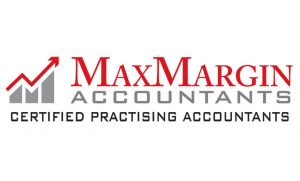Business is intended to grow and desires to attain its goal through huge efforts. Organisations may stumble across the needs which were boosting formerly but are no longer significant. It can be business structure, payroll system or size of commercial space. The transformation from sole trader to a limited company is not peculiar in Australia. But few things should be kept in mind before transforming
Is it necessary to transform?
The distinction between a sole trader and company structure should also be considered the prior to transformation
- Taxing Difference– Sole traders are taxed as individuals whereas companies are taxed as a separate entity.
- Tax Rate– Companies pay tax at the corporate rate (27.5% for certain SMEs) whereas sole traders pay taxes based on their personal marginal rate
- Income– Things required to report income, Way of reporting income
- Paperwork and bookkeeping
- Ongoing costs of operation
- Who is accountable for business debts
- Methods to assess business income
- Employment regulations
- Control of the business
When a company is been operated, owners personal assets are protected slightly from business losses and issues. Taxpayers can also be benefited during Tax Returns as business income can be divided between owners. It is feasible to transform into a limited company if an individual needs to grow his business, as companies have significant capability to introduce new co-owners.
It is essential for sole traders to consider each factor before transforming into a limited company. In Australia, small business counsellors can assist in further distinctions and create well-informed decisions.
If a small business owner determined transformation then he would make sure that the responsibility of the company director or officer will enlarge. Prior to expansion, it is essential to ensure new obligations as well as individual responsibility.
Related: Tax Accountants for Tradies
How do I mould transforming a sole trader into a limited company?
Under the Corporations Act 2001, it is mandatory for directors to implement numeral obligations that span from obstructing the company trading during insolvency to announcing to refrain conflicts between the company and personal interests. It is an obligation to appeal company name through ASIC, the new Australian business number along with other mandatory registrations such as GST and PAYG withholding.
Taxes, Responsibilities, Asset protection and Operational costs will be distinct for companies. Before transition ensure that you approached the right adviser who which assists you to expand your business
To seek further information on whether transforming from sole trader to a limited company is beneficial or for some reinforcement within itself, Contact the MaxMargin Accountants Team.
Max Margin Accountants is a registered accounting firm based in Melbourne. We specialize in helping our clients with a full array of Business Advisory, Taxation and Accounting services. We help businesses in all industries and sectors including Automatic Mechanic, Hotel and Bar, Barber & Hair Dresser, Car Wash, Home Builder & Architecture, Cafe and Coffee Shop, Cleaner, Computer & IT Industry, Family Day Care, Gym and Personal Trainer, Small Businesses, Medical Practitioner, NDIS Business, eCommerce, Property Investors, Tradies and Taxi Drivers.
Last Updated on November 21, 2024










